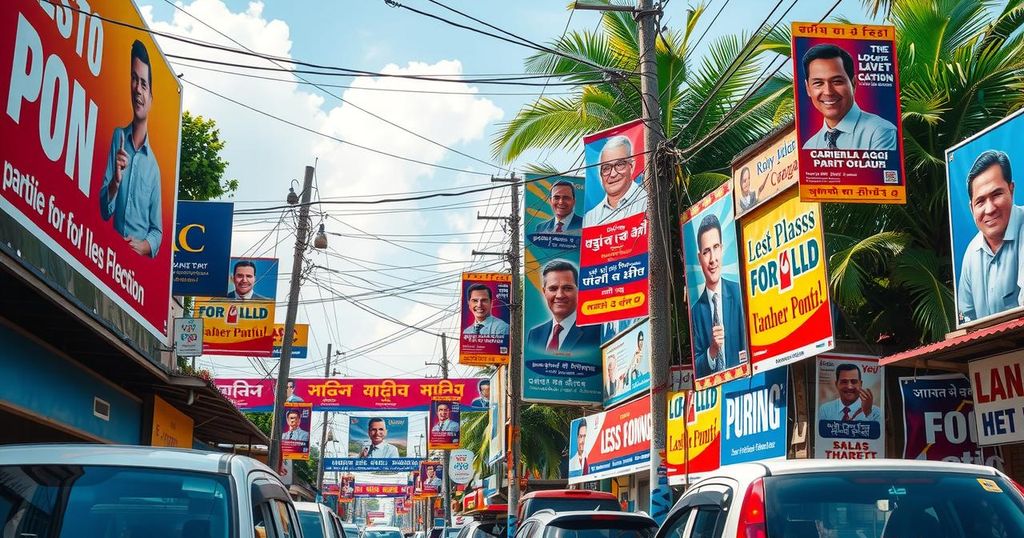World news
AFRICA, BRUNO MARS, CANADA, CNMI, CYNTHIA BLOCK, ELECTION, GOVERNANCE, GOVERNMENT, MAXIME BERNIER, NORTH AMERICA, PARLIAMENTARY SEATS, PEOPLE ' S PARTY OF CANADA, PRESIDENTIAL CANDIDATES, ROSE, SASKATCHEWAN NDP, SASKATCHEWAN PARTY, SASKATOON, SASKATOON INN & CONFERENCE CENTRE, SUDAN, U. S
Fatima Khan
0 Comments
A Tale of Two Electoral Systems: Canada and the Philippines
This article contrasts the Canadian and Philippine electoral systems, reflecting on personal experiences from both countries. The author recounts the differences in campaign styles, highlighting issues like political dynasties, electoral violence, and voter engagement in the Philippines. A desire for reform and positive change is expressed, emphasizing the need for greater representation of marginalized voices and accountability in governance.
SASKATOON — As the dust settles on Canada’s latest federal election, there are clear contrasts with the electoral process in the Philippines. This is my second time covering such an event; the first was in 2021 with Maxime Bernier’s People’s Party of Canada. Back then, I witnessed Saskatchewan’s provincial election results, where the Saskatchewan Party secured its fifth consecutive majority despite losing ground in urban areas like Regina and Saskatoon. And then there were the city elections that culminated with Cynthia Block being elected as the first female mayor.
Having lived in Saskatoon for nearly six years, I have observed the relative quietness of Canadian elections. Campaigns largely consist of simple lawn signs and flyers without much fanfare. This lack of spectacle stands in stark contrast to my experiences in the Philippines and during my time in Saipan, where elections are much more vibrant and chaotic.
In the Philippines, voters are gearing up for elections that will fill an impressive 18,198 positions across various levels of government, including 12 Senate seats. Upon returning to my home country recently, I found myself in the midst of a noisy and busy campaign season, which brought back a rush of memories. Early morning campaign jingles blare from speakers, while brightly colored posters adorn nearly every surface imaginable.
This chaotic atmosphere, surprisingly often misunderstood as spirited, masks serious issues in rural areas where electoral violence remains a risk, with reports of candidates being targeted by hired gunmen among rivals. Moreover, the practice of vote-buying continues, showing just how deep-rooted dysfunction lies beneath the surface.
Campaign messages often echo the same themes: a commitment to prioritize the rights of the underprivileged. Yet, only a handful of elected officials truly deliver on such promises. Many candidates hail from long-standing political dynasties, perpetuating a cycle of privilege and power that seems almost impossible to break.
As for Senate candidates, they often include former entertainers and personalities with questionable backgrounds—quite a shift from traditional qualifications like legal or economic expertise. It raises an eyebrow about the selection criteria and prompts scrutiny over who really represents the voice of the people.
The disparity in voter information and engagement presents a challenge. Many voters lack the resources to make informed decisions, often swayed more by candidates’ entertainment value during rallies rather than by substantial political platforms. This electoral immaturity threatens the elected officials’ intent to serve rather than pander.
For instance, controversial figures like Pastor Apollo Quiboloy can still vie for Senate positions despite their sordid pasts. The role itself should demand law and policy-making, requiring diligent research and informed legislative drafting—something many seem ill-prepared for.
As I moved through Bulacan province during my visit, I was confronted by familiar faces enduring daily struggles, living in slums while politicians offer little but empty promises. This cycle of patronage politics and the deep cultural concept of debt of gratitude (\”utang na loob\”) traps voters in a system where they feel obliged to support incumbents, often sustaining political dynasties.
Despite residing in Canada, I hold onto hope for the Philippines. I want to see genuine change that elevates the voices of the marginalized, ensuring their rights are prioritized in legislative discussions. There should be more robust efforts to offer quality education for children and better wages for workers. Furthermore, transparency in governance should become the norm, with taxpayer money legitimately benefiting the populace rather than merely padding the coffers of the elite.
The comparison between electoral processes in Canada and the Philippines highlights significant systemic issues underlying the latter’s political landscape. Even as Canadian elections unfold quietly, the chaos and inherent challenges in the Philippines demand urgent reform. A longing for transformative change is evident, focusing on the empowerment of marginalized voices, enhancing the quality of education, and ensuring true accountability in governance to secure a better future for all Filipinos.
Original Source: www.sasktoday.ca




Post Comment